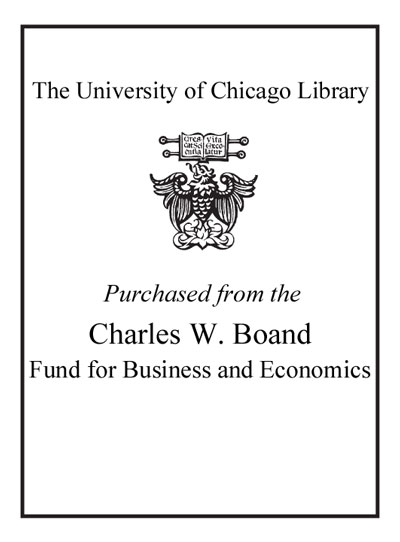Review by Publisher's Weekly Review
Corporations and industries must shift the capitalist paradigm from maximizing shareholder value to "build great products in the service of the social good," according to this lucid and optimistic manifesto by Harvard University business professor Henderson (coeditor, Leading Sustainable Change). To combat "massive environmental degradation, economic inequality, and institutional collapse," Henderson identifies five key areas of reform: creating shared value between businesses and consumers; building "purpose-driven" organizations; establishing financial metrics to measure the environmental and social impact of business practices; cooperating on sustainable, self-regulatory standards across whole industries; and private sector support for democratic reforms. Henderson backs her claim that such changes are possible by citing numerous examples, including Unilever's profitable development of a sustainable tea supply chain, King Arthur Flour's commitment to empowering employees, and the partial repeal of North Carolina's "bathroom bill" under public and corporate pressure. Though Henderson's case to industry leaders is strong, her suggestions for general readers (eat less meat, "get political," become "values-driven 'intrapreneurs'" within their companies) feel scattershot. Nevertheless, this accessible and richly detailed call to action offers a clear vision for policy makers and business executives who agree with Henderson that the private sector has an obligation to tackle the world's biggest problems. Daniel Stern, the Stern Strategy Group. (Apr.)
(c) Copyright PWxyz, LLC. All rights reserved
Review by Library Journal Review
Because a degraded planet and impoverished populace will be bad for profits, Henderson (business, Harvard Univ.) strategizes how business will be part of the solution. She tells of a waste company that profited by selling valuable metals harvested from recycling and how Walmart saved a fortune by increasing the energy efficiency of its truck fleet. While such innovations may hurt short-term profits, she says they can mitigate future risks, citing what happened with Nike when it ignored its supply chain until it became synonymous with child labor. Henderson explores innovative practices that enhance customer relations, create engaged workforces, and promote long-term thinking in tackling environmental and social ills. To ensure businesses can act effectively, she explains, there is also need for supportive financial markets and governments. VERDICT Henderson's convincing arguments and passion will be a clarion call to action for business leaders and interested readers everywhere. A complementary work is microfinance champion Muhammad Yunus's A World of Three Zeros, while Christopher Leonard's Kochland offers a contrasting portrayal of the Koch Industries' single-minded resistance to any such ideas.--Lawrence Maxted, Gannon Univ. Lib., Erie, PA
(c) Copyright Library Journals LLC, a wholly owned subsidiary of Media Source, Inc. No redistribution permitted.
Review by Kirkus Book Review
A well-constructed critique of an economic system that, by the author's account, is a driver of the world's destruction. Harvard Business School professor Henderson vigorously questions the bromide that "management's only duty is to maximize shareholder value," a notion advanced by Milton Friedman and accepted uncritically in business schools ever since. By that logic, writes the author, there is no reason why corporations should not fish out the oceans, raise drug prices, militate against public education (since it costs tax money), and otherwise behave ruinously and anti-socially. Many do, even though an alternative theory of business organization argues that corporations and society should enjoy a symbiotic relationship of mutual benefit, which includes corporate investment in what economists call public goods. Given that the history of humankind is "the story of our increasing ability to cooperate at larger and larger scales," one would hope that in the face of environmental degradation and other threats, we might adopt the symbiotic model rather than the winner-take-all one. Problems abound, of course, including that of the "free rider," the corporation that takes the benefits from collaborative agreements but does none of the work. Henderson examines case studies such as a large food company that emphasized environmentally responsible production and in turn built "purpose-led, sustainable living brands" and otherwise led the way in increasing shareholder value by reducing risk while building demand. The author argues that the "short-termism" that dominates corporate thinking needs to be adjusted to a longer view even though the larger problem might be better characterized as "failure of information." Henderson closes with a set of prescriptions for bringing a more equitable economics to the personal level, one that, among other things, asks us to step outside routine--eat less meat, drive less--and become active in forcing corporations (and politicians) to be better citizens. A readable, persuasive argument that our ways of doing business will have to change if we are to prosper--or even survive. Copyright (c) Kirkus Reviews, used with permission.
Copyright (c) Kirkus Reviews, used with permission.
Review by Publisher's Weekly Review
Review by Library Journal Review
Review by Kirkus Book Review

